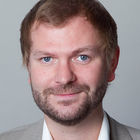A long-term, painstaking undertaking with no guarantee of success – and yet necessary: the development policy "tackling" of causes of flight
Schraven, Benjamin / Jörn GrävingholtThe Current Column (2016)
Bonn: German Development Institute / Deutsches Institut für Entwicklungspolitik (DIE) (Die aktuelle Kolumne, 20 June 2016)
Bonn, 20 June 2016. Today is World Refugee Day, and it comes with a new, sobering record: at the end of 2015 there were 65 million refugees on the move worldwide – more than ever before. However, in spite of a strong increase in refugee numbers in Germany and Europe, the so-called refugee crisis remains a crisis of the poorer countries of the world. The vast majority of those fleeing not only come from emerging and developing countries, most of them do not leave their own country of origin or region, either. From Pakistan and Iran to Jordan, Lebanon and Ethiopia and on to Nigeria or Colombia – the list of countries housing the most refugees and internally displaced people reads like a cross section of the global south. Is this why the "hour of development policy" is upon us when it comes to tackling the causes of flight and displacement? What are the principal causes – and what can and should development policy do to "tackle" these? The key reason for flight and displacement is undoubtedly armed conflicts. In addition, terror, repression, hunger and natural disasters are further reasons for flight. However, major waves of flight usually only occur where several of these factors occur simultaneously.
The number and intensity of armed conflicts has increased significantly in recent years. The number of people killed each year in conflicts around the world has quadrupled to around 200,000 since 2010. The refugee crisis is therefore primarily a crisis of international peace and security policy. Two groups of causes converge here: conflicts for power, recognition and opportunities within societies on the one hand; and an external world that does not do all it can to prevent aggressors from accessing weapons and funding, but often achieves the very opposite, for reasons of disinterest or self-interest. Attempting to explain conflicts and wars such as those in Syria, Afghanistan or South Sudan with the western lifestyle and its effects on developing countries, the geo or Middle Eastern policy of the USA or international arms exports is therefore not sufficient. Nevertheless, development policy can play a key role in voicing the interests of the civil populations concerned and – including as a form of enlightened self-interest – attempting to make the avoidance of violent conflicts a guideline for all political actions.
Beyond this, development policy is usually aimed directly at reducing internal social conflicts. Wars and civil wars often arise as a consequence of the intermeshing of various factors, which may be of an economic, social, historic, ethnic or (geo) political nature. Development policy aims to help transform such structural conflict situations.
However, it would be both tempting and wrong to assume that development policy can swiftly and simply do something to counter the causes of flight and displacement. Development policy has a long-term effect. In the short term, suffering can - and must - be reduced and further deterioration avoided. The aim must therefore be to give refugees in the main host countries better perspectives for the future. The intention is to involve local administrative bodies, support host municipalities and countries – not least also in order to prevent conflicts between refugees and long-term residents – and not just to "manage" the people in the camps, but also to actively involve them. In this, the primary consideration need not be that people with no prospect of a regular salary, better medical care or improved education for their children could "flee onward" to Europe. The majority of refugees do not have the necessary financial means for this anyway.
In the long term, international development co-operation must above all work to counter future causes of conflict and flight. In addition to combating poverty, hunger and environmental destruction, this also means increasing focus on creating functioning political structures that do not exclude any population groups from the opportunity to be involved and that are committed to the peaceful cohabitation of people. Crisis prevention and the promotion of peace should be reinforced as focal points of development policy. Similarly, the promotion of democracy and constitutional legality should also play a greater role.
Viewed globally, democracy as a form of government appears to have been on the decline for years, whilst civil wars and violence are increasing. This shows that when there is a lack of democratic participation states can rapidly become unstable and conflicts can escalate easily. For too long western donor countries have supported authoritarian regimes in the Middle East and Africa in order to achieve short-term political stability. The goal in the future must be to improve welfare and civic participation in these countries. This means that donor countries need to work much more closely with civil society in these states. All of this takes time, is painstaking and provides no direct guarantee of success. Nevertheless, it is essential for countering crises, wars and large-scale flight in the long term.


